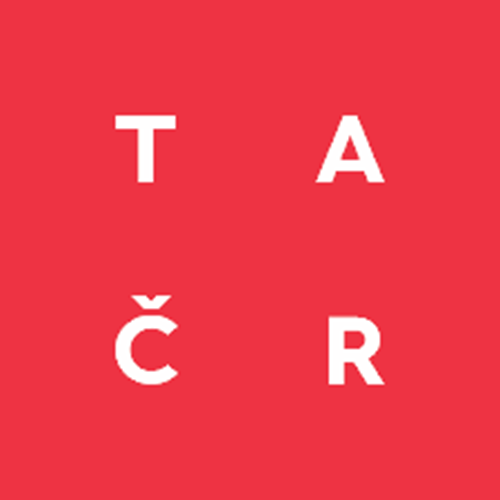The Applied Plasmochemistry Research Group of the Department of Plasma Physics and Technology is now mainly dedicated to researching the patented CaviPlasma technology. We have recently published an extensive article on this technology. Many newly acquired projects prove the promising future of this technology and its research.
Project Cleaning of membrane filters by hydrodynamic cavitation (FW10010041) of Assoc. Prof. Pavel Sťahel aims to develop a low-energy technology for cleaning micro and ultrafiltration membranes without using any chemicals using pressure pulses during the collapse of cavitation bubbles. Subprogramme 1, Technology Leaders of the Czech Technology Agency TREND program, funds this project in collaboration with colleagues from Brno University of Technology and Zena s.r.o. This project that runs from January 2024 to June 2026.
Another project, Water Purification and Recycling Technology using Plasma and Cavitation (FW1001037) aims to design, produce, and function advanced technology for water purification and treatment using an innovative plasma discharge in a cavitation nozzle. The principal investigator of the project, again funded by subprogramme 1 Technology Leaders of the TREND program, is Prof. Luděk Bláha. The project involves Assoc. Prof. Pavel Sťahel and his colleagues. Together, they are working on developing the technology, which will then be verified in actual conditions in wastewater treatment plants for municipal and industrial wastewater for at least half a year. The project involves the Brno University of Technology and the companies ASIO s.r.o. and ORYX-CZ, s.r.o. The project is in solution from January 2024 to June 2026.
From January 2024, the team of Assoc. Prof. Pavle Sťahel also focuses on the project of CaviPlasma technology for decontaminating CBRN substances. CBRNs are chemical (C), biological (B), radiological (R), or nuclear (N) agents that pose a significant risk to people and society. The project CaviPlasma: broad-spectrum large-volume plasma decontamination technology for the IRS (VB02000041) is funded by the Security Research Programme 2021-2026 (SECTECH) of the Ministry of the Interior of the Czech Republic. The Applied Plasmochemistry research group collaborates with the Institue of Botany of the CAS, Brno University of Technology, and ORYX-CZ, s.r.o. The project will be ongoing until the end of 2026.
Assoc. Prof. Pavel Sťahel is also researching the use of plasma technologies in agriculture through the project Aquaculture of the 21st Century - Modern, Smart, and Environmentally Friendly (QL24010170). The implementation of this project started in March 2024. The project deals with fish farming, indications of diseases and treatment of fish, and environmentally friendly preparation of feed. The project is funded by the Ministry of Agriculture of the Czech Republic, specifically the EARTH II program. The project's principal investigator is the Institute of Vertebrate Biology of the CAS, and partners outside MUNI include the Research Institute of Plant Production and BioFISH, s.r.o. The project will continue until the end of 2028.
Od dubna 2024 se doc. Sťahel také věnuje Komplexnímu řešení malé domovní ČOV s důrazem na odstraňování fosforu a mikropolutantů Projekt Technologické agentury ČR z programu Prostředí pro život cílí na vývoj, návrh, výrobu a ověření komplexního řešení malé domovní čistírny odpadních vod na principu CaviPlasma technologie. Hlavním řešitelem je doc. Ing. Pavel Rudolf, PhD. z Vysokého učení technického v Brně a mezi partnerty dále mimo MUNI patří Energetický ústav VUT, Botanický ústav AV ČR a společnost Projekt bude v řešení do konce června 2026.
From April 2024, Assoc. Prof. Pavel Sťahel is also working on a Comprehensive Solution for a Small Domestic Wastewater Treatment Plant with an Emphasis on Phosphorus and Micropollutant Removal (SS0720057). The Technology Agency of the Czech Republic from the Environment for Life program project aims to develop, design, produce, and verify a comprehensive solution for a small domestic wastewater treatment plant based on the CaviPlasma technology. The principal investigator is Assoc. Prof. Pavel Rudolf from the Brno University of Technology and the partners include the Energy Institute of the Brno University of Technology, the Institute of Botany of the CAS, and the company APBLAST Group s.r.o. The project will be in solution until the end of June 2026.
The latest project is the Method of water sterilization for fish farming using CaviPlasma technology (FW11020128). It is funded by the Technology Agency of the Czech Republic through the TREND project from the subprogramme 2 Novices. It has been in progress since July 2024. The aim is to verify the CaviPlasma for water treatment and sanitization for fish farming. The Institute of Vertebrate Biology of the CAS and the companies BioFish, s.r.o. and ABPLAST Group s.r.o. also collaborate in the research. The end of the project is scheduled for June 2027.
Do you want to join the successful research of CaviPlasma technology? Write to Assoc. Prof. Pavel Sťahel. The Applied Plasmochemistry research group welcomes new colleagues and students.









